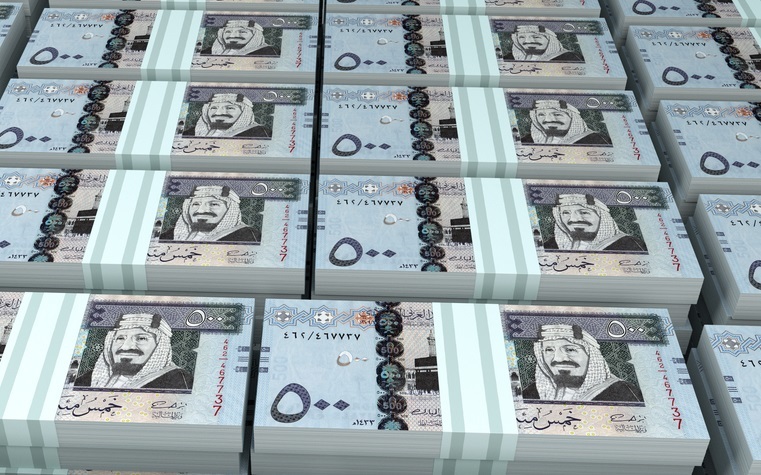Saudi Arabia, a country under some
financial pressure, is now poised to suspend its usual practice of issuing
local currency bonds.
A press release on Oct. 27 showed the Saudi government
will suspend normal borrowing activities because of a record-setting
$17.5 billion bond issue just weeks ago.
The unprecedented international bond
issue was in the press last week, as analysts noted the country taking
advantage of an A1 rating from Moody's, and acting quickly to secure the funds
from the international market at a time when Saudi officials see it as
imperative to provide the same levels of support for their citizens after
slumping oil prices.
“Boom -- they went full-scale,” GMSA Investments Ltd. Trader Angelo Rossetto said in a Bloomberg News piece on the
bond issue.
There's no word on when local bond
issues will resume.
For more insight on how this type of
international burrowing can work, Gulf News Journal spoke with Marvin
Goodfriend Thursday. Goodfriend is a professor of economics at the Carnegie
Mellon Tepper School of Business.
“(The Saudis) are not in a position
to cut back the spending,” Goodfriend said, describing some of the pressures on
Saudi Arabia right now. “They want to provide a level of sustenance for their
people that can no longer be funded out of oil revenues.”
With this kind of borrowing,
Goodfriend said, the Saudis are essentially trading on the future values of
commodities as they find ways to do more long-term financial planning. It's a
long-term strategy, he said, that syncs with the consensus that oil prices are
not likely to rebound anytime soon.
Goodfriend said large bond issues like the one Saudi Arabia accomplished on the international markets provide
stability.
Responding to a question about
whether it's better to borrow from other countries, or do local bond issues,
Goodfriend said there are a number of positives to working in the international
bond market.
He described countries
like Germany and China as relatively willing and established buyers, countries
that are saving and looking for a place to put their money.
In addition, he said, there is the
idea that by securing bond purchases from other countries around the world, a
country issuing bonds can actually build support from a greater network of
allies: since the bond buyers have an incentive to make sure they get their
money, they may be more likely to take actions to ensure that country’s long-term solvency. It's an idea, he said, that goes back to Alexander Hamilton and
the financial relationship between the original 13 colonies and powerful
British backers.
“You might elicit some support from
your adversaries,” Goodfriend said.
However, borrowing also
means taking on the responsibility of making good on the money.
With an apparent appetite for debt,
the Saudi Arabian government is making big plays, in finance, related to sustainable
energy projects, and in its efforts to revolutionize an economy that had always
relied on big oil.
Now, with a lot of international financing, the Saudi Arabian
leadership seems ready to move forward in keeping the national economy afloat
and moving from traditional energy commodities to the next big thing.
Saudis cease local issues after $17.5 billion in international bonds




 Alerts Sign-up
Alerts Sign-up